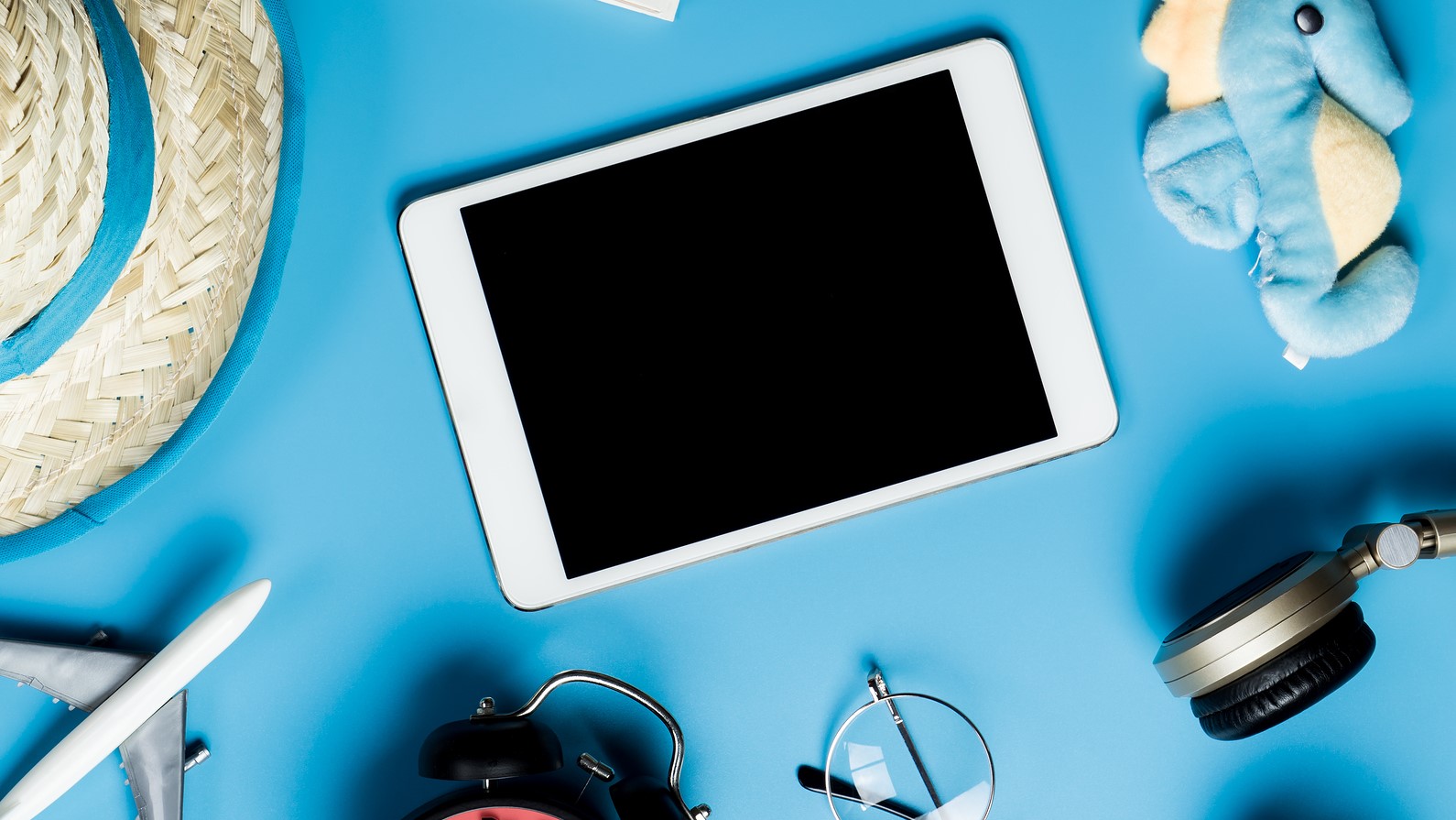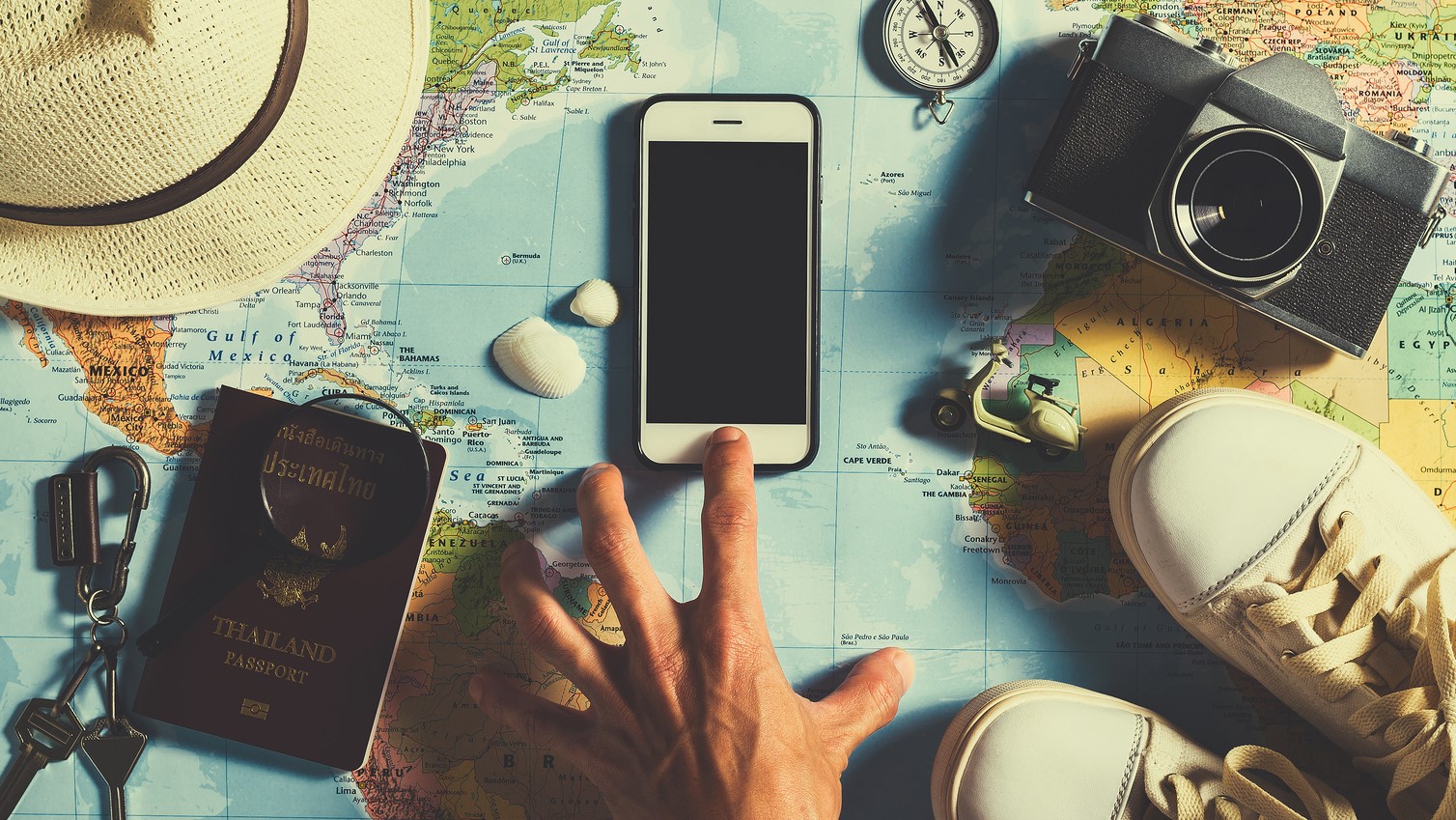NOWADAYS everyone seems to have an abundance of technology lying around. As hardware becomes more affordable and companies churn out new releases faster than you can break the old ones, the build up leaves us with the classic problem of excess: which ones to use and for what purposes. Travelling is often the scenario that most presents us with this dilemma – should we take our laptop, our tablet or our phone? Too often while packing I’ve insisted that I needed all three, only to lug around heavy hardware that takes up precious space and never even gets used. Don’t be like me: figure out what really works for you before you go!

Laptop
The laptop has many obvious advantages. It’s got a bigger screen, connects to all your other devices, has full programme capability and huge storage space, which means there are no issues keeping up with assignments if you’re taking a cheeky holiday during the school year. But, unless you’ve got one of the newer, slimmer laptops, these devices usually represent significant weight additions to your luggage. Maybe not on day one or two, but on day 35, trust me, they do. They also come with cords that are a nightmare to keep sufficiently condensed. It is also not as easy to keep in touch with friends or parents while on the go when your laptop is all you’ve got in your bag.

It would also be disastrous should it get stolen. Since the invention of the Cloud, you shouldn’t really have to worry about losing all the important files saved on your laptop but if you are in the middle of paper season, replacing it quickly in order to carry on with your assignments could be an expensive bill you hadn’t budgeted for if someone does happen to alleviate you (without your consent) of your weight burden.
Tablet
The crossover between a smartphone and a laptop, the best part about the tablet is its size – it packs easy! You can hold all of your readings in one place, read PDF versions of your textbooks (bonus – no heavy books to carry) and still use basic versions of word processing programs like Word. Most of them also have a keyboard attachment you can buy to make schoolwork a little easier when on the road.

If you’ve got format-heavy assignments due while you’re away, the tablet’s modified and abridged word processing apps might not be sufficient to get the final versions you need, but should be good enough in the draft stages. Unless your tablet has its own data plan with a roaming package, you might feel a bit disconnected without your phone if your travel destination is one of those places where WiFi isn’t free. And though your tablet has many of the same smart functions as your phone, taking photos on your tablet isn’t as discrete or cool as it is on your smartphone, which usually has a better camera anyway.
Phone
The smartphone is aptly named. It is the Pandora’s box of intelligent devices – a camera, a messaging system, a book, an alarm clock, a map, a flashlight and so much more. It’s small size and high storage amounts mean you can store PDF versions of your travel plans and is discrete enough to pull out in the street when you need to use the map function. Your phone is also the most convenient way to keep in touch with friends back at uni, so you’re left not behind on all the Whatsapp group banter.

The downsides? If you’re taking long train rides throughout Europe, you might find the small screen of your smartphone to be insufficient in keeping you entertained when you’re smashing out episodes on your Netflix account or keeping up with your course readings. Checking in to student portals might be difficult if your school’s website isn’t mobile friendly and though many travel websites might be, often the process of entering countless fields in the required forms makes using a phone cumbersome. Then there’s the battery life – I don’t know about you, but I can barely make it through a single day without charging my phone, and it’s brand new!
So….which one?
The right decision for you likely depends on the combination of answers to four important questions:
For more advice on travelling, check out these 71/2 Important Things to Take With You...